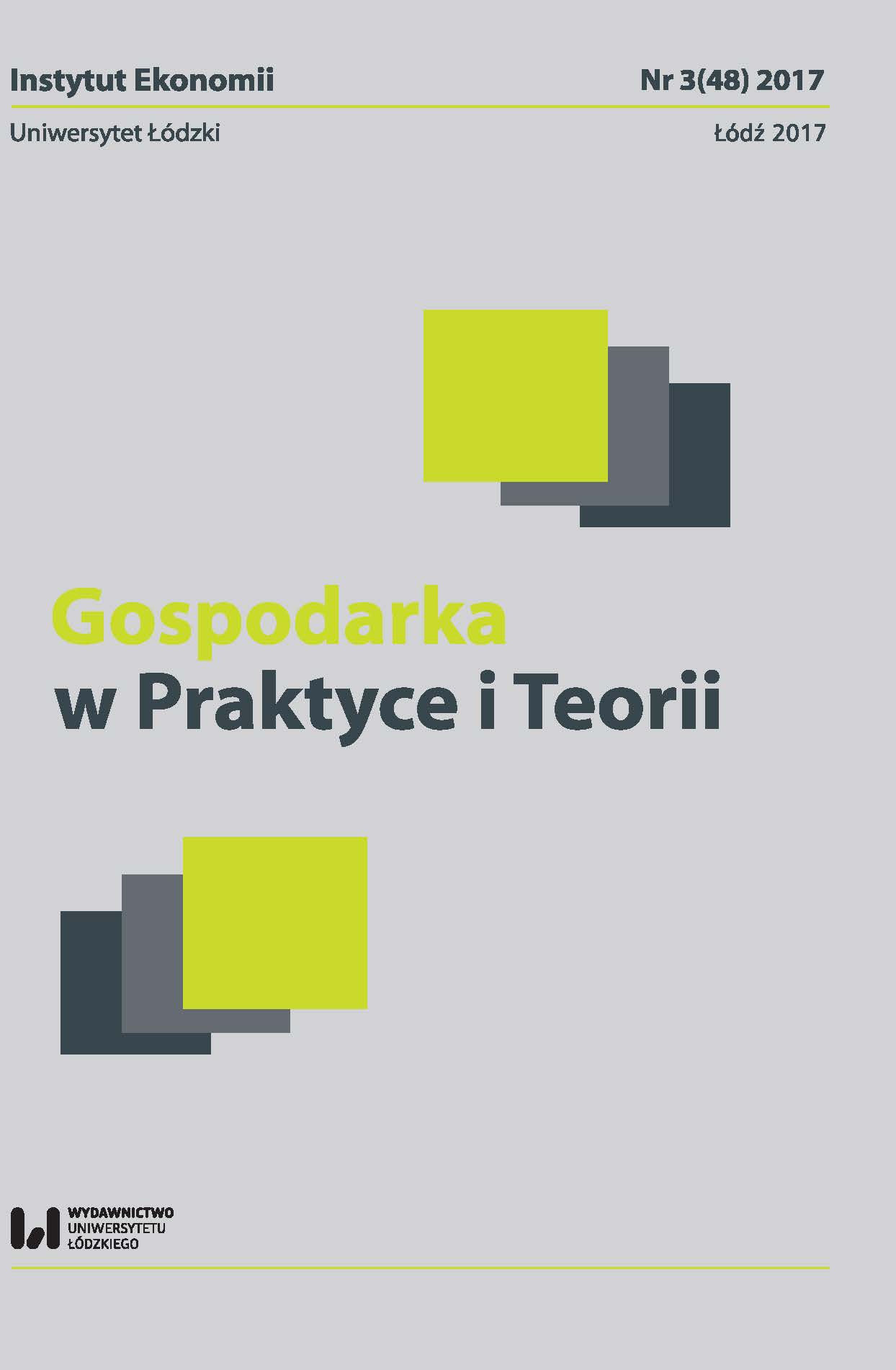Development opportunities for circular economy in the textile and apparel industry
DOI:
https://doi.org/10.18778/1429-3730.48.05Keywords:
circular economy, textile industry, apparel industryAbstract
Circular economy is the answer to the inevitable need to reduce the impact on the environment. Closing production cycles means desisting from the current linear model, which delivers huge amounts of waste. The circular economy model is based not only on eco‑efficiency, but also on the right approach in product design and re‑use. The overriding objective of the circular economy is to minimize the amount of waste produced or to eliminate it completely. The textile and apparel industry is one of the most polluting industries in the world, generating waste mainly in the form of clothes. The problem of huge quantities of unused clothing is further compounded by the idea of fast fashion and excessive consumption. This article outlines the steps that should be taken to implement the basic assumptions of the circular economy in the textile and apparel industry, thus demonstrating the potential for this concept in the garment industry. The author also explains the basic guidelines of closed‑loop economy and points to the specific characteristics of the textile and apparel industry and its environmental impact.
References
Banaitė D., Tamošiūnienė R., Sustainable development: The circular economy indicators’ selection model, „Journal of Security and Sustainability Issues” 2016, vol. 6, nr 2.
Google Scholar
Burchart‑Korol D., Zrównoważone zarządzanie zasobami naturalnymi bazujące na gospodarce cyrkulacyjnej, „Zeszyty Naukowe Politechniki Śląskiej. Seria: Organizacja i Zarządzanie” 2016.
Google Scholar
Circle Textiles Program, http://www.circle‑economy.com/textiles/ (dostęp: 29.05.2017).
Google Scholar
Czym jest gospodarka okrężna?, http://odpowiedzialnybiznes.pl/aktualno%C5%9Bci/czym‑jest‑gospodarka‑okrezna/(dostęp: 30.08.2017).
Google Scholar
European Commission, Report on the implementation of the Circular Economy Action Plan, Brussels 2017.
Google Scholar
Firma Tesso, http://tesso.pl/?pl_ekologia,13 (dostęp: 29.05.2017).
Google Scholar
Fischer A., Pascucci S., Institutional incentives in circular economy transition: The case of material use in the Dutch textile industry, „Journal of Cleaner Production” 2017, vol. 155.
Google Scholar
Geissdoerfer M., Savaget P., Bocken N.M.P., Hultink E.J., The Circular Economy – A new sustainability paradigm?, „Journal of Cleaner Production” 2017, vol. 143.
Google Scholar
GUS, Infrastruktura komunalna w 2015 roku, Warszawa 2016.
Google Scholar
Komunikat Komisji do Parlamentu Europejskiego, Rady, Europejskiego Komitetu Ekonomiczno‑Społecznego i Komitetu Regionów. Zamknięcie obiegu – plan działania UE dotyczący gospodarki o obiegu zamkniętym, Bruksela, dnia 2.12.2015 r. COM(2015) 614 final.
Google Scholar
Kramarczyk J., Mieć czy być? Minimalizm jako przykład świadomej konsumpcji w świetle badań własnych, „Prace Naukowe Uniwersytetu Ekonomicznego we Wrocławiu” 2015, nr 414.
Google Scholar
Kryk B., Zrównoważona jakość życia a zrównoważona konsumpcja i zachowania ekologiczne polskich konsumentów, „Handel Wewnętrzny” 2013 nr 6, t. II.
Google Scholar
Ministerstwo Rozwoju, Gospodarka o obiegu zamkniętym, https://www.mr.gov.pl/strony/zadania/reindustrializacja‑gospodarki/zrownowazony‑rozwoj‑gospodarczy/gospodarka‑o‑obiegu‑zamknietym/ (dostęp: 22.05.2017).
Google Scholar
Mularczyk‑Meyer A., Minimalizm po polsku, czyli jak uczynić życie prostszym, Black Publishing, Wołowiec 2014.
Google Scholar
Reconomy, Koalicja na rzecz gospodarki obiegu zamkniętego, http://reconomy.pl/pl/koalicja#instytut‑innowacyjna‑gospodarka (dostęp: 22.05.2017).
Google Scholar
Recykling odzieży chroni środowisko, http://kontakt24.tvn24.pl/recykling‑odziezy‑chroni‑srodowisko, 1398106,ugc (dostęp: 29.05.2017).
Google Scholar
Swap ciuchowy, czyli darmowa wymiana ubrań, http://rodzinneporachunki.pl/swap‑ciuchowy‑czyli‑darmowa‑wymiana‑ubran/ (dostęp: 28.05.2017).
Google Scholar
Szyja P., Istota, zakres i praktyka kształtowania gospodarki okrężnej, „Prace Naukowe Uniwersytetu Ekonomicznego we Wrocławiu, Ekonomia Środowiska i Polityka Ekologiczna” 2016, nr 453.
Google Scholar
Walętrzak G., Odpady tekstylne i włókiennicze – wartościowy surowiec czy problematyczna pozostałość, „Logistyka Odzysku” 2016, nr 4.
Google Scholar
Zasady Slow Fashion, http://www.slow‑fashion.pl/zasady‑slow‑fashion/ (dostęp: 29.05.2017).
Google Scholar








